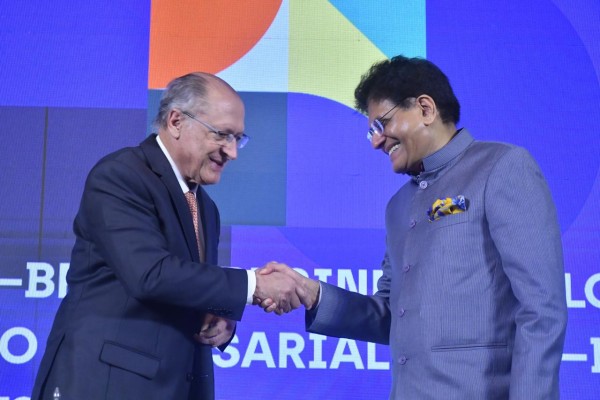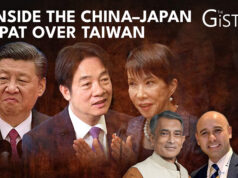
India and Brazil have agreed to broaden the scope of their Preferential Trade Agreement (PTA) and enhance cooperation across sectors such as agriculture, defence, digital innovation, and clean energy, marking a key step in strengthening bilateral economic and strategic ties.
The decision was announced during the India-Brazil Business Dialogue held in New Delhi, jointly organised by FICCI, ApexBrasil, and the National Confederation of Industry (CNI). Both sides reaffirmed their commitment to advancing trade, fostering investment, and expanding market access.
Brazil’s Vice President Geraldo Alckmin, who also serves as Minister of Development, Industry, Trade, and Services, described India as a “priority partner” in Brazil’s trade diversification strategy. Bilateral trade reached $12 billion in 2024, and both countries are aiming to achieve $20 billion by 2030.
“We want to broaden the Preferential Trade Agreement so that our trade flows expand,” Alckmin said, noting that initiatives such as investment facilitation and a mechanism to prevent double taxation would help create a stable business environment.
India and Brazil are exploring ways to expand the existing PTA between India and MERCOSUR—the South American trade bloc that includes Brazil, Argentina, Paraguay, and Uruguay—to enable greater tariff concessions and smoother market access. Officials said this aligns with India’s broader strategy to deepen trade ties with Latin America and other emerging economies.
Alckmin invited Indian companies to invest in sectors including automotive, IT, semiconductors, renewables, healthcare, agriculture, aerospace, and digital technologies. He added that both nations are working to introduce an e-visa system and a digital partnership covering AI, high-performance computing, and tech start-ups.
From the Indian side, Commerce and Industry Minister Piyush Goyal underscored India’s economic resilience, pointing to a 7.8% GDP growth in Q1 of FY25 and the IMF’s upward revision of India’s 2025 growth forecast to 6.6%. “Our engagement with Brazil reflects how complementary our economies are,” Goyal said, identifying agriculture as a key area for collaboration and global food security.
India’s trade surplus with Brazil currently stands at $6.77 billion in exports against $5.42 billion in imports for FY25. While overall trade volume has moderated since FY23, officials expressed optimism that targeted policy alignment will revive momentum.
The event also saw the relaunch of the India-Brazil Business Leaders Forum, with FICCI and CNI exchanging the Terms of Reference to boost private sector dialogue.
Other speakers, including Frederico Lamego of CNI and Ana Repezza of ApexBrasil, highlighted the role of business-to-business cooperation in driving innovation and sustainability.
Goyal reiterated India’s focus on structural reforms, ease of doing business, and infrastructure expansion, describing macroeconomic stability, modern infrastructure, and improved quality of life as the three pillars of India’s growth.
Both countries signalled intent to elevate their partnership beyond trade, deepening engagement in technology, innovation, agriculture, and defence cooperation.




